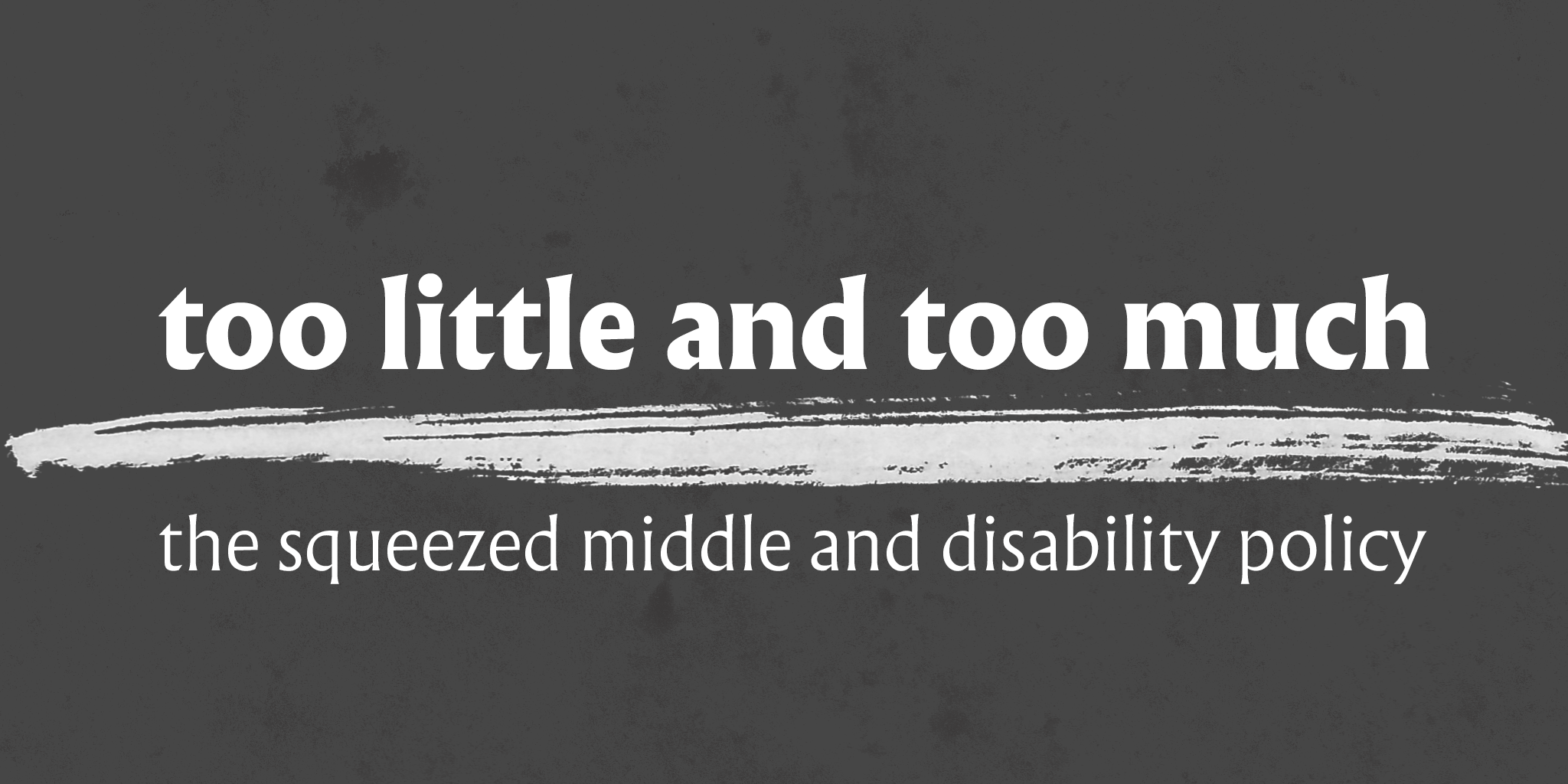
If you’re a disabled member of the professional middle class—or even the working poor—it can hard to get the support you need if you don’t have relatives or a spouse to do it for you. Although many disabled professionals make too much to qualify for benefits, they make too little to pay for services like housekeeping without going into crushing amounts of debt. That’s my story in a nutshell: I’ve had to go into an absurd amount of debt to get the education I needed to be able to work, accommodate myself, and offset my lack of family wealth.
My flavour of autism makes it harder for me to do a lot of repetitive, physical, “low-skilled” jobs. I put “low-skilled” in quotation marks because cleaning, cooking, building, and other manual tasks do require skill, but they don’t get you paid very much. I’m much better at abstract and symbolic work: writing, analysis, design, conceptualisation, and research. The kinds of jobs I can do usually require at least a bachelor’s degree, so it was impossible for me to get a full-time job before I graduated from college. I paid my bills with government grants, scholarships, student loans, and whatever money I could get from paid internships and freelance work. I don’t regret going to college and grad school, but I wish that I weren’t forced to go into so much debt. Most of my tuition was covered through scholarships—I took out loans to pay for rent, food, transportation, and other expenses. I haven’t been able to build up savings because of all the loans and credit cards. I live paycheque to paycheque.
But if I hadn’t gone to college, I wouldn’t be able to find a job at all despite being able to work. I can’t do retail. I can’t do food service. And with my back problems, construction, manufacturing, and maintenance are right out. I would have had to go on disability to cover my expenses and receive support. I don’t want to go on disability, since I’m able to work. It’s a difficult slog to get disability payments, too; most people are denied on the first round. And if I were to get on disability, my housing choices would be limited. Social Security doesn’t pay enough to cover the rent costs in most cities, and it takes years—sometimes a decade or more—to qualify for Section 8 housing vouchers. In a nursing home, I’d lose my rights, autonomy, and dignity, so that’s not an option, either. I’ve been estranged from my family for fifteen years, so going back home to my parents wouldn’t work. (Living with my parents was a lot like being in an institution anyway.)
There doesn’t seem to be room in public policy for disabled people who can work and need support at the same time, unless those disabled people are also poor. I do not want to be in poverty. I’ve been struggling financially over the past few months, and I’ve hated every minute. I was poor for most of my twenties, and it was miserable. I want to be professionally successful and get the support I need with things like housekeeping without breaking the bank. Is that too much to ask for? Apparently so, since every home-care benefit I can think of is means-tested. I meet the criteria right now, but what if I get a job that pays me well? (And by “well,” I mean, “I’m able to pay my rent and bills and have a reasonable amount of disposable income.” I don’t expect to become rich, at least not in this lifetime.) Then I’m left high and dry.